Todos os dias oferecemos software com licenças GRATUITAS que do contrário você teria que comprar!
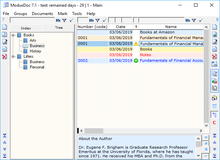
Giveaway of the day — ModusDoc 7.2.310
ModusDoc 7.2.310 esteve disponível como oferta em 28 de julho de 2019
Dados Universal cataloger ModusDoc foi projetado para catalogação de diversos dados: documentos, e-books, áudio-livros, filmes, fotos e outros arquivos, links, programas, pastas e notas em um banco de dados com o objetivo de ter acesso rápido e conveniente a eles.
Você pode digitalizar uma pasta ou um disco inteiro. ModusDoc criar árvore grupos de acordo com a estrutura de pastas do disco e os registros relevantes - links para os arquivos.
Você pode adicionar quaisquer documentos para ModusDoc banco de dados, incluindo e-books, áudio-livros, filmes, fotos e outros arquivos, atalhos ou pastas, simplesmente arrastando-os com o mouse. Você pode arrastar hiperlinks, selecionados de texto, mensagens de correio electrónico, ModusDoc cataloger irá criar automaticamente os respectivos registros (hiperlinks ou notas). Além disso, você pode adicionar todos os objetos localizados em uma pasta, basta selecionar a pasta na caixa de diálogo!
Documentos e outros arquivos que podem ser armazenados diretamente no ModusDoc banco de dados ou banco de dados pode armazenar os hiperlinks para estes documentos/arquivos.
ModusDoc dados cataloger permite criar um número ilimitado de bancos de dados. Cada banco de dados pode ter configuração individual: ter escondido ou reorganizadas colunas, adicionou novos de vários tipos (simbólico, textual, numérica, lógica, data, data e hora).
Cada ModusDoc banco de dados consiste de um GRUPOS e REGISTOS de tabela. Grupos são apresentados em duas guias, Índice (estrutura linear) e Árvore (estrutura hierárquica); o programa gera a árvore automaticamente!
A filtragem (seleção) ferramentas, localizado imediatamente acima do grupo de guias e acima de cada campo dos registros da tabela permite localizar dados necessários de forma rápida e conveniente.
Um grupo pode conter documentos e outros ficheiros (incorporado e dependente, como hiperlinks), atalhos para os aplicativos que criou esses documentos, hiperligações para recursos da Internet relacionados aos documentos e programas apresentados no grupo, bem como atalhos para pastas e notas.
NOTA: 1-computador com licença vitalícia.
The current text is the result of machine translation. You can help us improve it.
Requisitos do Sistema:
Windows 98/ XP/ Vista/ 7/ 8/ 10
Publicado por:
Valery KrasnovPágina Oficial:
http://www.modus58.net/modusdoc/index.htmlTamanho do arquivo:
4.8 MB
Preço:
$15.00
Títulos em Destaque
Versão portátil é instalado em uma mídia removível (USB flash drive) e pode ser executado em qualquer computador com Windows.
A versão de rede é instalado no servidor (ou o administrador da estação) e em estações de trabalho. Senha do administrador – admin
Nuvem está instalada a versão na nuvem (cloud de armazenamento de dados, tais como o Dropbox) e pode ser executado em qualquer computador com Windows.
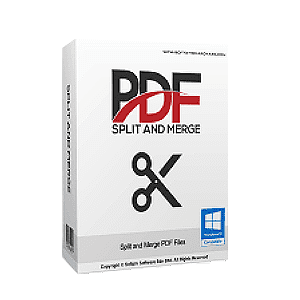
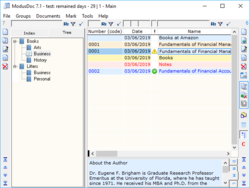

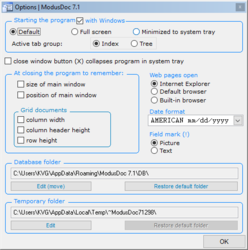
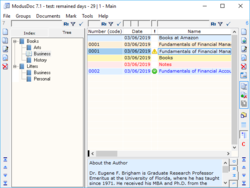

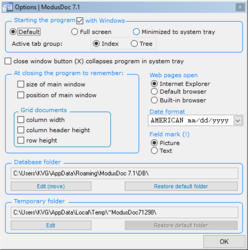
Comentáriosrios do ModusDoc 7.2.310
Please add a comment explaining the reason behind your vote.
I really have no clear idea what benefit this software package offers.
A video would be useful. As it is, I am far from convinced it is likely to be useful to me -- while it looks "complicated'. And frankly, I for one do not have time to sort out the workings of a programme that I might not ever need.
Sorry guys, but you've done little to convince the average joe just WHY we should need such a programme!
Save | Cancel
Tranmontane,
This is useful to users who manage larger file systems on their PCs. A relational database system is incredibly useful for those who have TB's of data and need a quick way to index and manage that data.
You start by scanning all the files on your PC, which will build a quick index of everything available. By adding different indexing values, you can start to build relationships. For example, I can add a value field of "Client" to all files in the index and then start updating files with the client the file is in relation to. Moving forward, I can quickly filter down to a specific client and see all files in the system in relation to them.
It takes time to set up a working process, but this software seems to be pretty straight forward for those who are trying to set something simple up in terms of database management on a local system.
However- I will say that the initial scan of a drive is pretty long. Not really a fault of the devs, but just something to keep in mind if you're trying to load in huge systems. My main drive took around ten mins.
Save | Cancel
It has a long way to go in the UX department. For example:
1. rollover bubble out (a user option (what? no user options) to turn on and off to expedite learning.
2. visual feedback while the DB is being created - (what is the program doing? as a % of whole or list of files)
3. Tutorials.
4. the ability to select index directories on multiple drives in one pass (Some docs are on C, some on the LAN-NAS, some are on removable devices)
5. index by subject, date and relationship (this invoice is associated with this PO, which is related to this check, which is related to this contract, which is related to this contractor. And the like.)
6. (not sure because it is still indexing.) but multiple flags and categories, for example this is for tax purposes, this is confidential this is privileged. but also flagged or labeled this was sent to lawyer w/date. Thus it describes how a file is used. In another example - an auto accident, there are many flags associations and people involved from the ins co to the lawyer so creating associations is a BIG deal, labels, colors etc can sort urgency.
Thanks for the test, it has some potential, but after 2 hours, it is still indexing so there is more once there is time to get into it.
Odd that this is V7.2
Save | Cancel
Looks as though it might be useful although there's obviously a bit of a learning curve to overcome.
Unfortunately, the program doesn't seem to recognise the FreeNAS drives I have shared to my Windows system (as drives X: and Y:). This is of course where all the files I might want to catalogue are stored. Ah, well...
I don't have a CD/DVD drive attached to this PC but I mounted a disc image and incorporated that into a quickly set up database. I can envisage this being useful for optical disc cataloguing purposes but the main benefit would seem to be creating e.g. a database of Comedy and then being able to incorporate all desktop, optical disc, NAS(!!) and online files, sources for Lenny Bruce under this.
I'd certainly be happy to give it a whirl once the NAS issue is sorted.
The obvious suggestion for improvement would be to address this
Save | Cancel
An undo last operation button would be helpful
Scanning the contents even of an SSD partition of moderate size seems to take quite a long while
The program doesn't recognise items that it has already scanned in. Tackling this and being otherwise able to identify and remove duplicates would be useful.
I'd like to see more in the way of a button bar for operations and the potential to combine these as macros. There are buttons for various operations but these are scattered about the program window rather than being gathered together. Being able to place buttons to choice would be welcome
There is an array of filters but their use is not immediately apparent. Hopefully reference to the help file will clarify their purpose. Being able to save sets of filters for re-use would be welcome.
I crashed the program with an apparent operand error and then gave up.
Being able to watch key folders or to run regular or start-up updates would also be helpful.
Save | Cancel
Oh yes add a pause button! Let folks pause or stop and save location. I need to reboot and have no idea how long this indexing will take.
It needs a UX designer badly.
Save | Cancel